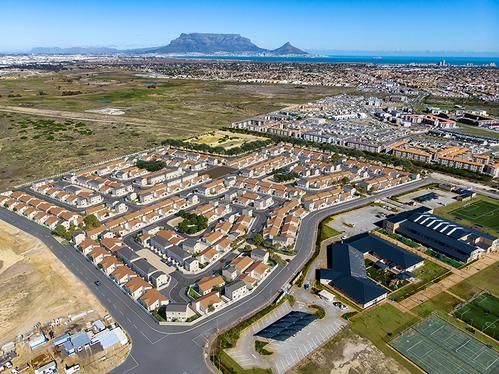411
Cape Town Eases Housing Rules Amid Soaring Demand and Skyrocketing Prices

Cape Town is taking steps to simplify housing development approvals as surging migration drives up property prices and tightens the housing market. Known as Africa’s most expensive city for real estate, the metro is experiencing a housing crunch as thousands relocate in search of better living conditions.
With the city framed by Table Mountain and the ocean, and sitting near the winelands, Cape Town has long appealed to wealthy buyers. Homes on the exclusive Atlantic Seaboard fetch up to $5,600 (around R106,000) per square metre, making them among the priciest on the continent.
Governed by the Democratic Alliance since 2006, Cape Town also enjoys a reputation for being South Africa’s best-run major city. During the pandemic, it attracted remote-working professionals and middle-class families, many of them fleeing cities like Johannesburg in Gauteng. The result? A population boom and a severe shortage of affordable housing.
“Over the last two years, we’ve seen 100,000 new families settle in Cape Town, mostly from Gauteng,” said Mayor Geordin Hill-Lewis. “It’s putting immense pressure on our housing market.”
Home prices in Cape Town have climbed by 30% in just five years, according to Stats SA, and many locals are being priced out.
To tackle this, the city will implement changes to its municipal planning by-laws by July or August to speed up housing developments. Currently, it takes about two years to approve construction plans — the new rules aim to shorten this significantly.
“We’re seeing more applications, which is a good sign,” said Hill-Lewis. “Now we need to move them through the system faster and deliver more affordable housing.”
Despite Cape Town’s luxurious appeal, it’s also home to some of the country’s most impoverished areas. Khayelitsha, one of the world’s largest informal settlements, sits on the city’s outskirts, and crime remains a serious issue in the Cape Flats — a legacy of apartheid-era forced removals.
City spokesperson Luthando Tyhalibongo said that more than 4,000 building plans worth R7.5 billion were approved in the last quarter of 2024 — a 61% rise from the previous year. These include residential, industrial, and commercial developments.
While some have suggested the city should introduce price controls to ease housing affordability, the mayor is firmly opposed.
“Price controls are a bad idea,” Hill-Lewis said. “They discourage investment and, ironically, end up pushing prices even higher over time.”
Over the next 12 years, Cape Town plans to invest R120 billion in infrastructure upgrades, including electricity, water, and public transport systems. The city is also boosting visible policing and other initiatives to fight crime.
Follow Joburg ETC on Facebook, Twitter , TikTok and Instagram
For more News in Johannesburg, visit joburgetc.com
Sourced:Business Tech



























